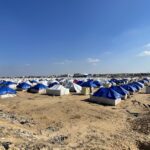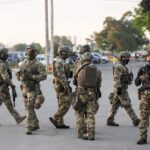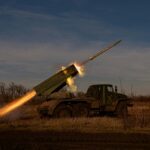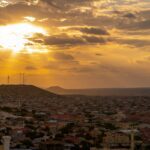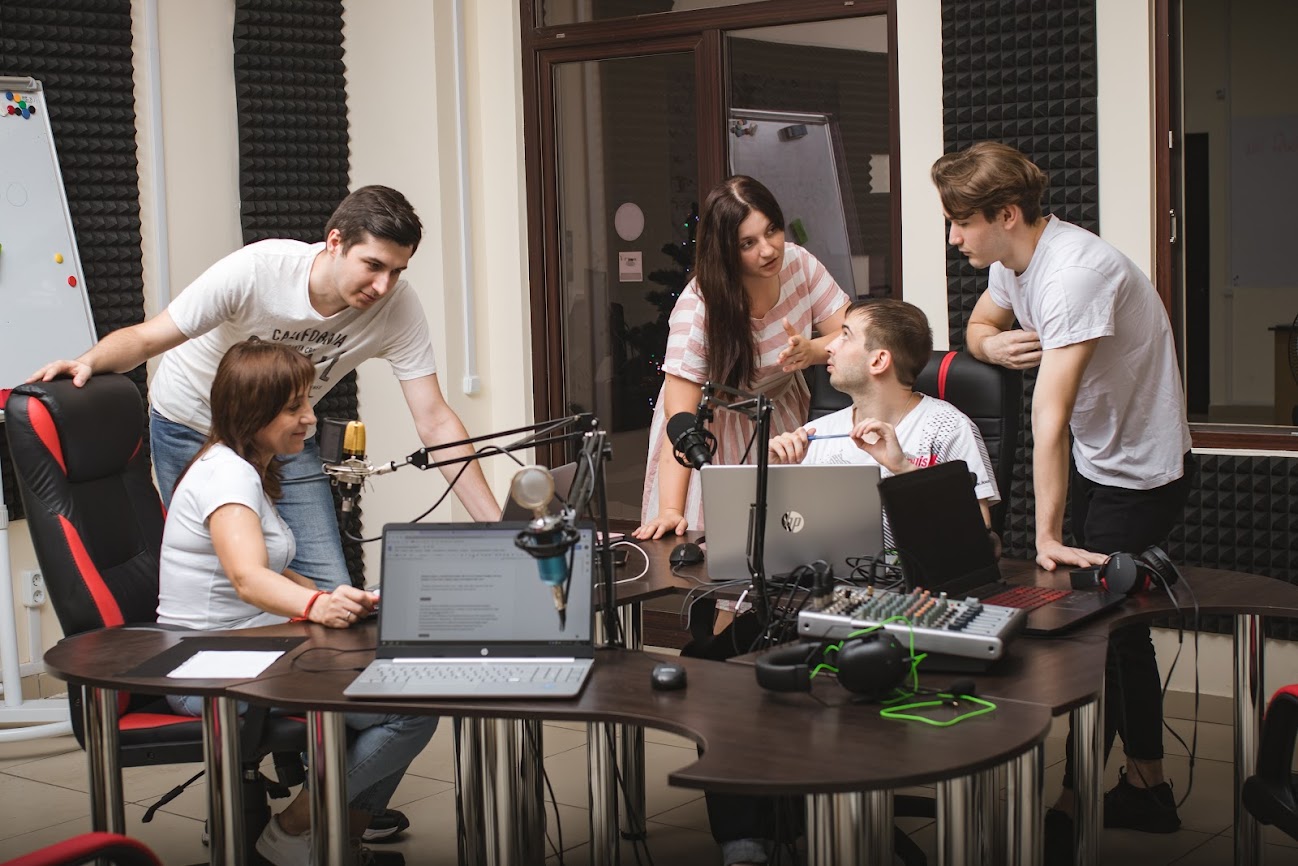Anastasiia admits that by the time she graduated from uni, she was already burnt out and considered quitting journalism. However, in 2017, she got a call from a friend who volunteered in the East.
“He said to me: ‘You worked in the East before. Let’s go back there together to create a local radio,’” the journalist remembered, “So I thought: “Let’s do it!”
Challenging the Status Quo
A team of like-minded volunteers came to Bakhmut and started working on their project. Many were not from the East and did not understand the local dynamics. However, it turned out for the best.
“A lot of locals told us: “This isn’t your Kyiv or Lviv, you cannot criticize certain people here,” Anastasiia recalled, “However, we were young and naive, and we came to Bakhmut with our values and ideas of change. We didn’t know who to fear, so we didn’t. We investigated everyone, and we were and remain independent.”
“We know that people in the occupation listen to us. They want to know what’s happening, and they know they can trust us to tell the truth.”
Launching a free media was tough in an environment where many news channels were owned or influenced by businesses or politicians; and where few dared to run local-themed investigations. As Anastasiia and her team realized, the war was not the only problem in this part of the country. There was corruption, Russia’s information warfare, and a lack of quality media to challenge the status quo.
“We trained a lot of locals who later became our correspondents,” the reporter recalled, “We helped them become better journalists than those who worked for years in Donetsk region. They did amazing investigative work, and it is a huge achievement training these former economists, activists, and so on.”
Over time, the team grew and expanded to a digital platform and a FM radio station. It increased its reach outside of Bakhmut and to Ukrainian territories that Russia occupied in 2014, which are in close proximity to the city.
Transformations on the Ground
The team faced a lot of backlash from other regional media which had business or political affiliations. At first, locals questioned whether Free Radio was truly free. However, as the newsroom stuck to journalistic standards and monitored local developments in an objective way, it attracted a greater audience. Listeners in occupied territories tuned in to Free Radio, too, despite it being blocked by Russian authorities; they also began requesting more news about Donetsk and other areas under Russian control. This happened years before the big war of 2022.
“A lot of pro-Ukrainian people reached out to us from the occupied areas,” Anastasiia said, “Many recommended us to those who were not necessarily pro-Ukrainian, but who wanted to get credible news. We position ourselves as a Ukrainian media with a pro-Ukrainian stance, but we follow journalistic standards, so our audience had nothing to complain about in terms of reporting.”
The journalist believes that access to an independent news source helped locals question Kremlin narratives in an area where pro-Russian sentiments have been very strong. Proximity and family ties in Russia made this border area susceptible to Russian propaganda, and few local media dared to challenge that.
“A lot of people started to reflect and analyze what Russia truly was after they got our content,” Anastasiia went on, “I have examples of young students from the occupied territories, who, thanks to these reflections, chose to leave and seek higher education in Ukraine-controlled areas.”
People in Bakhmut, too, liked the idea of having an independent media platform that focused on local issues and that held elected officials accountable.
“We realized that our idea is working when our stories contributed to better decision-making on the ground,” Anastasiia said, “For example, we analyzed how accessible the voting polls were, and this enabled more wheelchair users to vote.”
The team investigated cases of corruption such as murky public procurement or meddling in elections, and the newsroom also reported on the Russian troops amassing close to the Ukrainian border in early 2022 thus warning locals of a potential full-scale invasion.
Displacement and Destruction
Free Radio’s newsroom was well prepared when Russia launched its full-scale war against Ukraine on February 24.
“We watched carefully what Russia was doing, and we knew something big was coming,” Anastasiia recalled.
Still, the team did not think that the invasion would be this huge, or that the Russians would try to take Kyiv. The expectation was that the Russian army would rather try to capture the rest of Donbas as they already controlled chunks of this region since 2014.
By the time Russian missiles started falling across Ukraine, Free Radio’s team had already shipped off most of its equipment to other parts of the country. Some team members evacuated from Bakhmut right away while others chose to remain and continued reporting from the city.
By 2023, however, the entire team had fled. Most of the city is gone, anyway.
“Our community is displaced, and so are we,” Anastasiia reflected, “It is hard to remain a local media because our audience is stranded all over Ukraine and Europe. Their needs and interests have changed, but they still care about their hometown, and they want to know what’s going on there, what happened to their houses, and what the local officials are doing.”
Right now, the team covers evacuations and helps Bakhmut locals navigate the new reality of displacement and destruction of their homes. Journalists encourage those who remain in the city to leave; and help them understand how to get help in a new place once they flee from danger.
“The last time I went to Bakhmut was in the end of 2022,” Anastasiia recalled, “We reported from the frontlines, and we did a few other trips close to the fighting areas. However, Russians destroyed one of our TV towers, so we are somewhat limited in how many people in the area we can reach. It’s heartbreaking to lose this close connection with your audience, but we’re trying to serve their needs from across Ukraine.”
While the team is working hard to survive in this new environment, it is already making plans for the future.
“We want to be one of the first media to return after liberation,” Anastasiia said, “We want to be the watchdogs tracking down renovation spending, and to scale this up across the area. We want to monitor the local governments and expand to the entire Donetsk region.”
The journalist is hopeful that the reintegration of the occupied areas will come soon, and her team is already prepping for that. The journalist plans to continue the local work after the victory and cover the issues national or international media overlook.
“We want to be one of the best local media on the local market,” Anastasiia said.
“We saw the impact our reporting had, and we know that these transformations cannot be reversed,” she concluded proudly, “Objectively, we went beyond our expectations because we did not only create an alternative to pro-Russian oligarch-owned media, but became the one media organization people used for analysis and explanations.”
Cover image: Free Radio’s office building in Bakhmut, which was destroyed in an attack. Photo taken November 2022. All images courtesy Anastasiia Shybiko.



